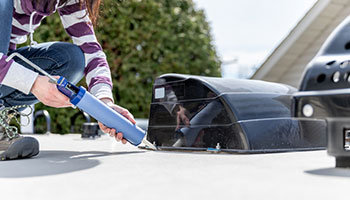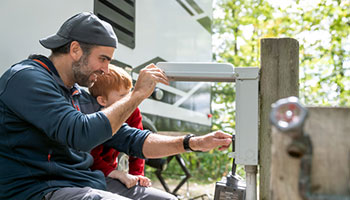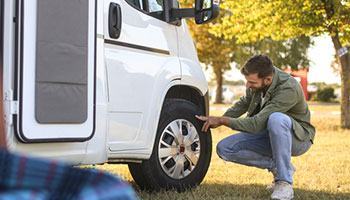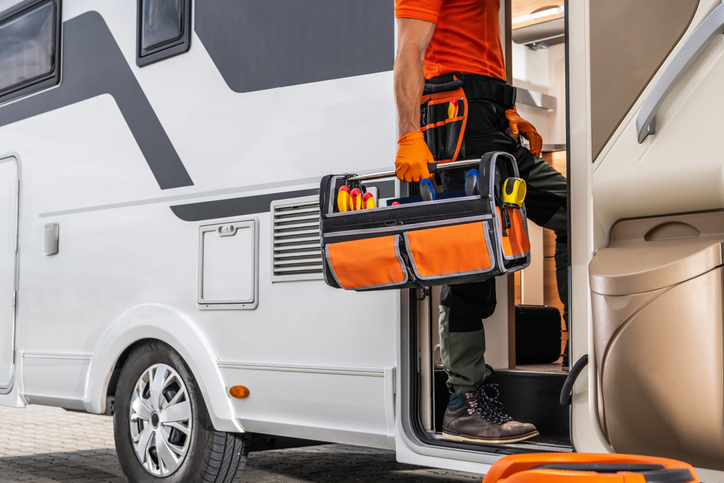9 Most Expensive RV Repairs (and How to Avoid Them)
RVs offer the ultimate freedom to explore the open road, but owning one comes with responsibilities, including maintenance and the potential for costly repairs. No one wants to face unexpected expenses while enjoying their RV, so understanding the common culprits behind expensive RV repairs is crucial. We’ll delve into the nine most expensive RV repairs, explaining why they occur and tips to help you prevent them, save money, and keep your adventures on track.
Common Culprits Behind Expensive RV Repairs
RV repairs can be a real headache, and several factors contribute to their high cost. While normal wear and tear from travel (road conditions, weather, etc.) certainly plays a role, often the biggest culprit is neglecting preventative maintenance. Those small and overlooked problems can quickly snowball into major expenses. The complexity of your RV systems contributes to the high cost too. Plumbing, electrical, and structural repairs are often more intricate and costly than those for a regular vehicle. And because RV repair is a specialized field, labor costs tend to be higher.
The 8 Most Expensive RV Repairs
Let’s explore eight of the most expensive RV repairs you might encounter and, more importantly, how to avoid them:

1. Roof Repair/Replacement: RV roofs are constantly exposed to the elements, making them vulnerable to leaks, cracks, and damage from tree branches or hail. Water damage from a leaky roof can spread quickly, affecting the interior and structure of your RV, leading to delamination and incredibly expensive repairs.
Prevention: Regularly inspect your roof for any signs of damage. Seal seams and vents annually, and consider applying a protective sealant. Trim overhanging branches and store your RV under a cover or indoors when not in use.
2. Engine and Transmission Problems: Motorhomes, like any vehicle, are susceptible to engine and transmission problems, ranging from minor issues to major breakdowns. Overheating, neglecting oil changes, and skipping regular maintenance can lead to costly engine repairs or even complete replacements.
Prevention: Meticulously follow your RV’s maintenance schedule. Regularly check your oil and coolant levels, and promptly address any performance issues. Avoid overloading your RV and ensure proper engine ventilation.
3. Leveling Jack Issues: If you don’t have a motorhome, you still have to worry about your travel trailer’s leveling jacks. Whether hydraulic or electric, they can experience problems like leaks, motor failures, or bent components. These issues can make it difficult or impossible to level your RV, potentially leading to further damage and expensive repairs.
Prevention: Regularly inspect your leveling jacks for any signs of damage or leaks. Lubricate moving parts as recommended by the manufacturer. Use leveling blocks on uneven ground to reduce strain on the jacks. Avoid overloading your RV, as this can put excessive stress on the leveling system. Be mindful of ground conditions and avoid deploying jacks on soft or unstable surfaces.
4. Air Conditioning System Issues: A malfunctioning AC unit can make your RV experience miserable, especially in hot climates. Refrigerant leaks, compressor problems, and electrical issues can lead to costly repairs or even AC replacement. These repairs are often expensive due to specialized refrigerants and labor.
Prevention: Have your AC system inspected and serviced annually. Regularly check refrigerant levels and clean the filters. Use your AC unit responsibly and avoid running it continuously at maximum capacity.

5. Electrical System Issues: RV electrical systems are complex, and problems can range from faulty wiring to malfunctioning converters and inverters. These issues can cause anything from flickering lights to complete power loss and can be difficult and expensive to diagnose and repair.
Prevention: Regularly inspect wiring and connections for any signs of wear or damage. Always use a surge protector when connecting to shore power to protect your RV’s electrical system from voltage spikes. Have your electrical system inspected annually by a qualified RV technician. Be mindful of the power demands of your appliances and avoid overloading circuits.
6. Plumbing System Leaks: Leaks in your RV’s plumbing system can cause significant water damage, leading to expensive repairs. Frozen pipes, cracked fittings, and worn-out seals are common issues. What’s worse is that water damage can spread quickly affecting walls, flooring, and even structural components.
Prevention: Inspect your plumbing system regularly for water damage. Additionally, properly winterize your RV to prevent frozen pipes. Use RV-specific plumbing products and avoid flushing non-biodegradable materials.
7. Appliance Repair/Replacement: Refrigerators, water heaters, furnaces, and other RV appliances can malfunction, requiring expensive repairs or replacements. Contributing factors include lack of maintenance, power surges, and general wear and tear can all contribute. Furthermore, RV appliances are often specialized models, and their replacement parts can be expensive.
Prevention: Follow the manufacturer’s maintenance instructions for each appliance. Have them inspected annually and ensure proper ventilation. Use surge protectors to safeguard against electrical damage.
8. Awning Repair/Replacement: Awnings provide shade and extend your living space, but they can be damaged by wind, rain, and sun exposure. Torn fabric, broken frames, and motor malfunctions can lead to expensive repairs. Awning fabric is costly to replace especially if the frame is broken.
Prevention: Secure your awning properly in windy conditions. Clean the fabric regularly and inspect the frame for damage. Lubricate moving parts as needed.

9. Tire Replacement: RV tires are subjected to heavy loads and extreme conditions, making them prone to wear and tear. Blowouts and tire failures can be dangerous and expensive. RV tires are larger and more specialized than standard car tires, resulting in higher purchase prices.
Prevention: Check your tire pressure regularly and inflate them to the recommended levels. Inspect your tires for wear and tear, and replace them as needed. Use tire covers to protect them from UV damage when parked.
Protect Your RV with Insurance Protection
Protecting your investment with comprehensive RV insurance is also crucial. At QRV Insurance, we understand the unique needs of RV owners. Travel with peace of mind. Contact us today at (866) 501-7335 or visit our website to get a tailored RV insurance quote and discover how we can help protect your adventures.
The information in this article is obtained from various sources and offered for educational purposes only. Furthermore, it should not replace the advice of a qualified professional. The definitions, terms, and coverage in a given policy may differ from those suggested here. No warranty or appropriateness for a specific purpose is expressed or implied.
